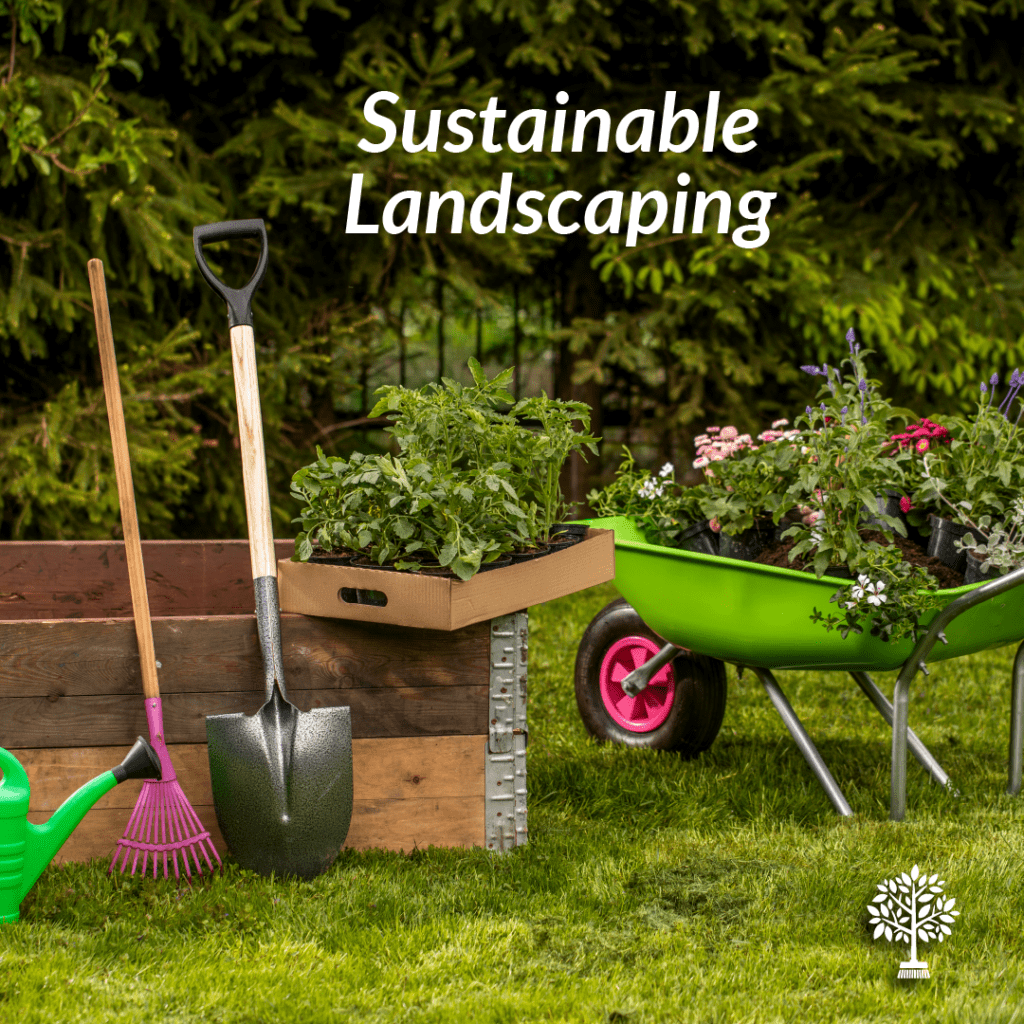So, you diligently recycle your paper, plastic, and metal, and try to use environmentally friendly products in your home, but what about your outdoor space? Here are some tips to keep your yard looking beautiful while limiting the environmental impact.
Choose native plants
Not only are native plants beneficial to wildlife, they’re more resistant to damage from disease or insects. Native plants are hardier and won’t require as much water or fertilizer to keep healthy, making your job easier!
Irrigate responsibly
Installing rain barrels to collect water from your downspouts is an ideal way to irrigate your lawn and garden without tapping into the local water supply. You’ll save money on your water bill and keep your landscape green during periods of drought. Use a solar-powered drip irrigation system that conserves water by applying it directly to plant roots and eliminates the need for a hose or sprinkler.
Re-think your lawn
A perfectly green golf course-worthy lawn has traditionally been a homeowner’s ideal. But maintaining that lawn requires frequent mowing, which usually means carbon emissions, watering, and the use of fertilizers and pesticides that can be harmful to the environment and cause water pollution. Consider planting ground cover like clover, moss, or spreading perennial plants that require little to no maintenance. In regions with little rainfall, look into xeriscaping, which utilizes drought-tolerant plants and materials to maximum effect.
Ditch the gas mower
It’s likely you’ll need a lawnmower for at least part of your lawn, but choosing an electric-powered version will eliminate any carbon emissions. They are quieter and many fold up for storage. Electric mowers are also less expensive over time because they eliminate the need for gas, oil, fuel filters, or spark plugs. Opt for a battery-powered cordless model to avoid the risk and hassle of dragging a cord as you mow.
Light up with solar
Exterior lights add visual appeal and safety to your property and utilizing the power of the sun is the most efficient way to keep your outdoor space illuminated at night. There are countless solar-powered options on the market, including motion sensing lights for security.
Mulch and compost
Replace chemical fertilizers with organic mulch to keep weeds at bay and plant roots cool. You can choose from a multitude of materials from cocoa to coconut to bark mulch. Over time, mulch will decompose, leaving you with richer soil.
For a fertilizer that does double duty, start a compost pile. You can add lawn trimmings, leaves, twigs, and mulch, along with kitchen scraps like coffee grounds, eggshells, and fruit and vegetable peels, reducing the amount of garbage that ends up in a landfill and providing a renewable, nutritionally rich source of fertilizer for your garden.
Sustainable hardscaping
Take advantage of reusable materials when you’re landscaping your property. Brick or natural stone are perfect for edging a flower bed or pathway, and wooden pallets (which are often available for free) can be repurposed for trellises, planter boxes, or fencing. Be sure to use non-toxic paints or stains. Choose permeable pavers or porous concrete for driveways or patios. This will allow water to flow through instead of creating run-off that can lead to soil erosion.


